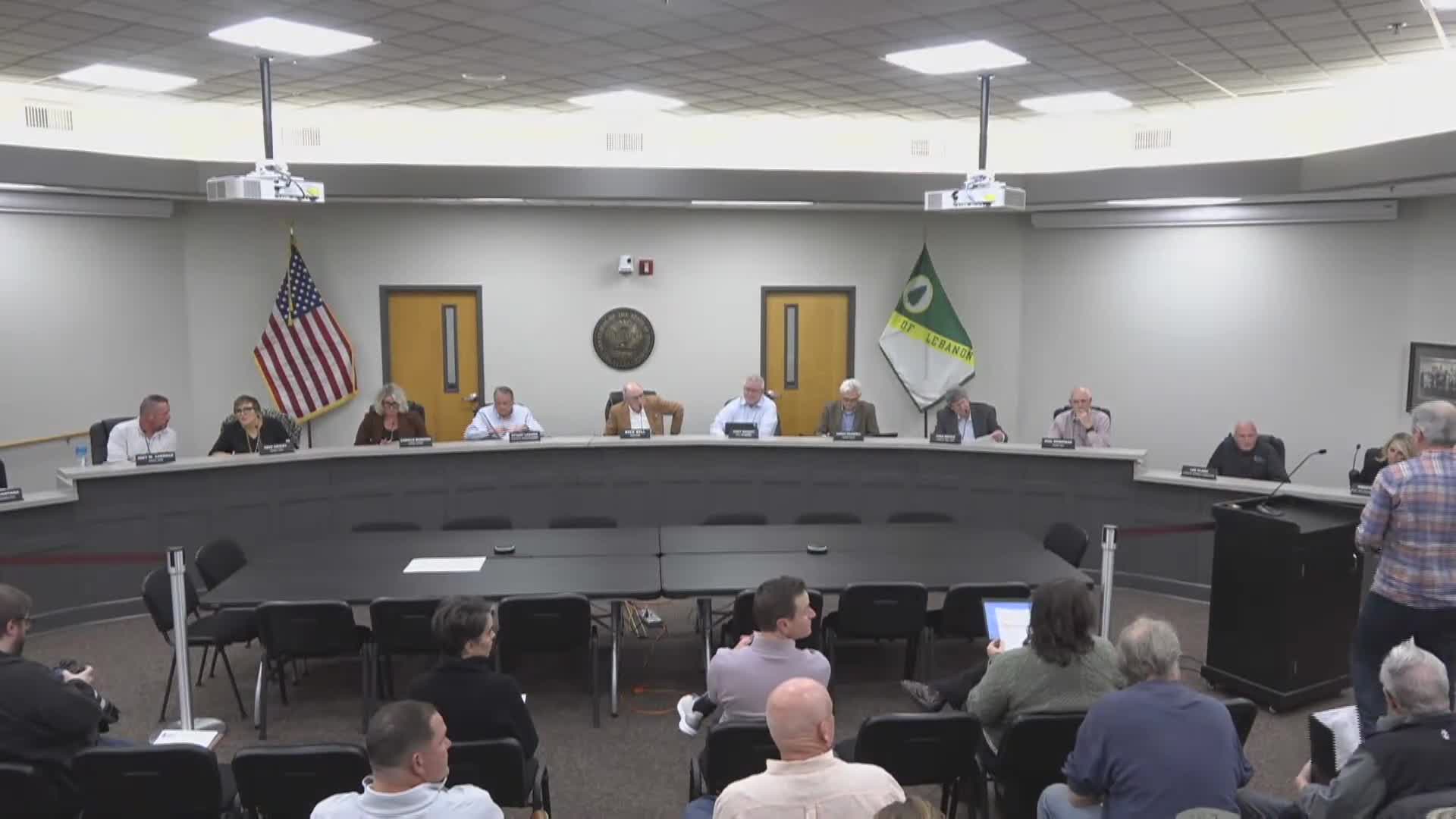Lebanon council keeps existing industrial zoning after public outcry over proposed changes
Get AI-powered insights, summaries, and transcripts
Subscribe
Summary
Mayor Bill Bell and the Lebanon City Council moved on first reading to keep the city’s current industrial zoning rules after a lengthy public hearing and debate over a comprehensive rewrite of Title 14, the city’s C‑11 zoning code.
Mayor Bill Bell and the Lebanon City Council moved on first reading to keep the city’s current industrial zoning rules after a lengthy public hearing and debate over a comprehensive rewrite of Title 14, the city’s C‑11 zoning code. Dozens of industrial property owners, tenants and rail and logistics companies urged the council to avoid retroactive restrictions that would strip transport and warehousing rights from parcels that have operated under longstanding industrial designations.
The concern centered on a proposed rewrite of the industrial sections of Title 14 that, in staff’s draft, would reclassify many existing IP‑zoned parcels into new IL/ IH designations with narrower permitted uses. Speakers representing property owners and operators told the council the change would create legal nonconforming situations and materially reduce property values and leasing prospects if transport and warehousing were removed.
Why it matters: Councilors said they heard consistent testimony that the proposed language could upend decades of investment and would create uncertainty for tenants and prospective companies considering Lebanon. After several amendment attempts, the council amended the first‑reading ordinance to retain the existing industrial zoning code and maps for properties currently zoned industrial.
Public comment emphasized concrete business outcomes. “This type of blanket change would immediately and materially reduce the value of long established industrial properties,” Richard Moscredelli said, identifying himself as a local property owner and urging that existing industrial parcels be grandfathered. Alex Dickerson, an attorney representing two industrial property owners, said one client who bought a warehouse in September expected to re‑tenant it for warehouse use but would be blocked under the draft code if transport and warehousing were removed.
Rail and logistics stakeholders also pressed the council to preserve existing rights. “We view ourselves not only as a transportation provider, but also as a strategic partner with the city,” Tyler White of RJ Corman Railroad Group told the council, and he asked to be included in further deliberations about code changes that affect railroad‑adjacent property.
Council response and action: Councilor Joey Carmack moved to remove the proposed new industrial zoning language and replace it with the city’s current industrial code and maps; Councilor Jerry Ashley seconded that amendment. After a roll‑call process in which several councilors recorded abstentions, the clerk summarized the result as technically a 4‑0 passage of the amendment on first reading, and the amended first reading will return for a second reading with the industrial section unchanged from current code.
Councilors who spoke during debate stressed two goals: protect existing, entitled industrial properties and use the zoning code to be more specific about how future undeveloped parcels may be considered. “I’m in favor of grandfathering those folks in,” Councilor Chris Crowell said during discussion, while other councilors said they support using the revised code to set clearer expectations about future rezonings.
What remains: The Title 14 rewrite is a comprehensive document that addresses housing, multifamily, signage and other city standards in addition to industrial uses. Councilors said the rest of the update remains under consideration and that second reading will include the amendment preserving existing industrial zoning. Staff and the planning commission had recommended approval of the complete update; the council’s first‑reading amendment narrows the change specifically for current industrial parcels.
Council materials: The proposed zoning update is cited on the agenda as request number 257286; the related item on building material standards is agenda item 257287. Planning Commission recommended approval of both items at its August 26 meeting.
Context and public stakes: Commenters framed the issue as both economic and procedural — they described long term investments, jobs dependent on distribution and concerns that retroactive changes would chill future capital investment. City leaders acknowledged the tension between guiding future development through a modernized code and preserving commitments made to current property owners.
